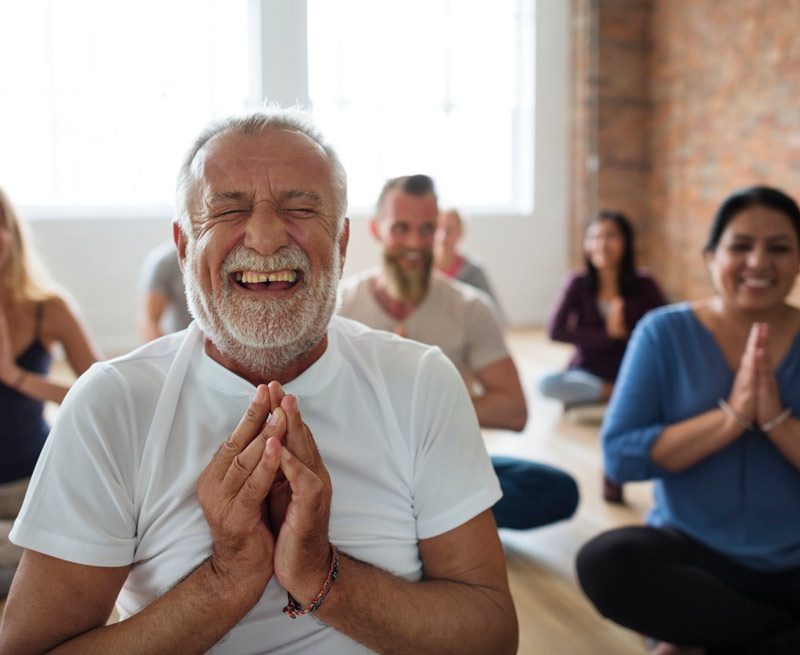Anxiety is a feeling that everyone experiences at some point. It’s normal to feel anxious when making important decisions, meeting new people, interviewing for a job, or encountering stressful situations. However, when anxiety ramps up and interferes with normal daily activities, this is known as an anxiety disorder.
Medication is often the first line of treatment for anxiety disorders. However, medications often come with undesirable side effects. They can also be expensive for people with limited means or no insurance. For those who prefer not to take medication, specific lifestyle changes can provide significant anxiety relief naturally.
Natural Remedies for Anxiety Relief
Exercise
When it comes to anxiety relief, regular exercise is one of the best options available. Many people misinterpret that regular exercise means grueling hours in the gym or sweaty spin classes that leave you sore for days. The Anxiety and Depression Association of America states that even a ten-minute walk is an excellent way to get quick, temporary relief from depressed or anxious moods.
Any type of exercise that gets your heart rate up and leaves you feeling a little bit out of breath can be beneficial for relieving anxiety. That’s because exercise releases endorphins, which have pain-relieving and mood-boosting effects! If you’re unsure where to start, try going for a light jog, following a pilates or yoga class on Youtube, or swimming laps in the pool. Just be sure to start slowly and build up your endurance gradually.
Stretching
In addition to aerobic exercise, stretching the body and loosening tight muscles can help alleviate anxiety symptoms. Often, when we are stressed out – and most people with an anxiety disorder experience high stress levels – we tense our muscles. From an evolutionary perspective, this reflex helps protect our bodies from harm. Anxiety is not always rational, though, and many things that bring it on – such as public speaking – do not pose any physical threat. When anxiety-induced muscle tension becomes chronic, it can lead to headaches, muscle aches, and fatigue.
A study from the National Library of Medicine found that implementing a short program of stretching exercises in the workplace effectively reduced levels of anxiety, bodily pain, and exhaustion, and raised levels of vitality, mental health, general health, and flexibility. Stretching every day can loosen tight muscles, allowing for better blood circulation. It also sends a signal to the brain that we are relaxed, which can help interrupt the anxiety cycle. Try incorporating some simple stretches into your daily routine, such as cat-cow pose, downward dog, and pigeon pose.
Breathwork
A significant component of anxiety is the physical sensation of fear or panic. This often manifests as short, rapid breaths that can make people feel lightheaded and dizzy. When we’re in this state, it’s difficult to think clearly and focus on anything else. Focusing on our breath is one of the best ways to calm down an anxious mind.
Breathwork, or deep belly breathing, is a technique that can be used to interrupt the cycle of fear and panic. To do breathwork, sit in a comfortable position with your spine straight and close your eyes. Place one hand on your stomach and inhale deeply through your nose for eight seconds, feeling your belly rise as you do so. Hold the breath for eight seconds, then exhale slowly through your mouth for another eight seconds. Repeat this process for several minutes.
About the Author: Maria Dean is a writer and former special education teacher. As someone who watched loved ones struggle with mental health challenges while growing up, her passion is to curate content that supports the building of a more inclusive world, including more accessible, natural remedies for anxiety relief.
Resources to Recover and Our Sponsor Laurel House Celebrate Black History Month
February is Black History Month, a time for celebrating the outstanding achievements of Blacks and African Americans and their central role in US history. It is also a time to recognize the struggles Black people have faced throughout the history of our nation and give tribute to the strength and resilience of generations of Black Americans who have risen above adversity.
Black History Month originated from an idea by Harvard-educated historian Carter G. Woodson, who wrote the Journal of Negro History in 1916 to herald the achievements of overlooked African Americans in US history and culture. In 1926 he led an effort by the Association for the Study of Afro-American Life and History (ASALH) to officially declare the second week of February as “Negro History Week.” These dates align with the birthdays of two crucial figures in Black American history: Abraham Lincoln (February 12, 1809), who signed the Emancipation Proclamation officially ending slavery in the United States, and the Black American abolitionist and author Frederick Douglass (February 14, 1818), an escaped slave who is widely considered the most influential civil and human rights advocate of the 19th century. In 1976, President Gerald Ford gave official governmental recognition to the observance by declaring February “Black History Month.”
Without the contributions of Blacks and African Americans to more than 500 years of US history, culture, entertainment and the arts, science, athletics, industry and the economy, public service, and the Armed Forces, we would not be the country we are today.
Image by www.rawpixel.com
The opinions and views expressed in any guest blog post do not necessarily reflect those of www.rtor.org or its sponsor, Laurel House, Inc. The author and www.rtor.org have no affiliations with any products or services mentioned in the article or linked to therein. Guest Authors may have affiliations to products mentioned or linked to in their author bios.
Recommended for You
- The Truth about Relapse in Addiction Recovery - April 14, 2025
- The Power of Peer Support in Mental Health Recovery - April 10, 2025
- Artificial Intelligence in Anxiety Management: How AI Helps Users Cope with Anxiety Symptoms - April 3, 2025





